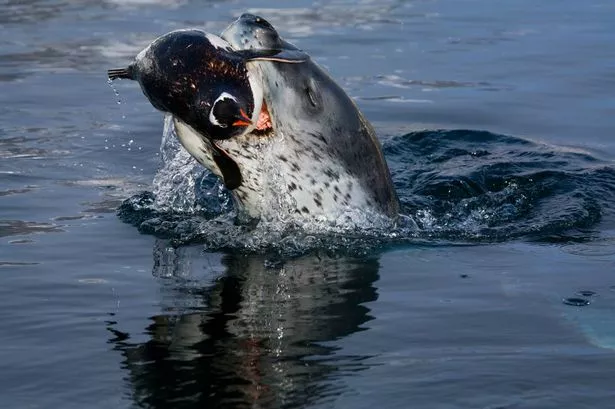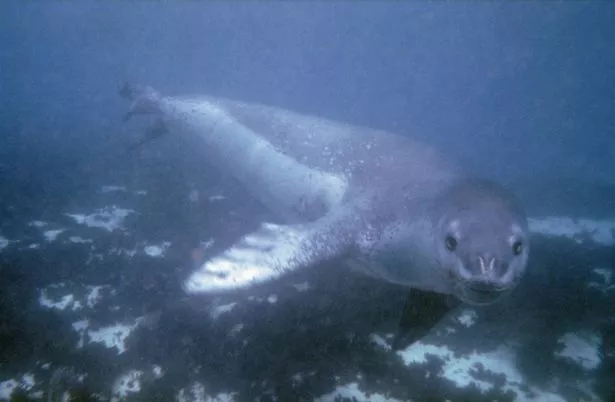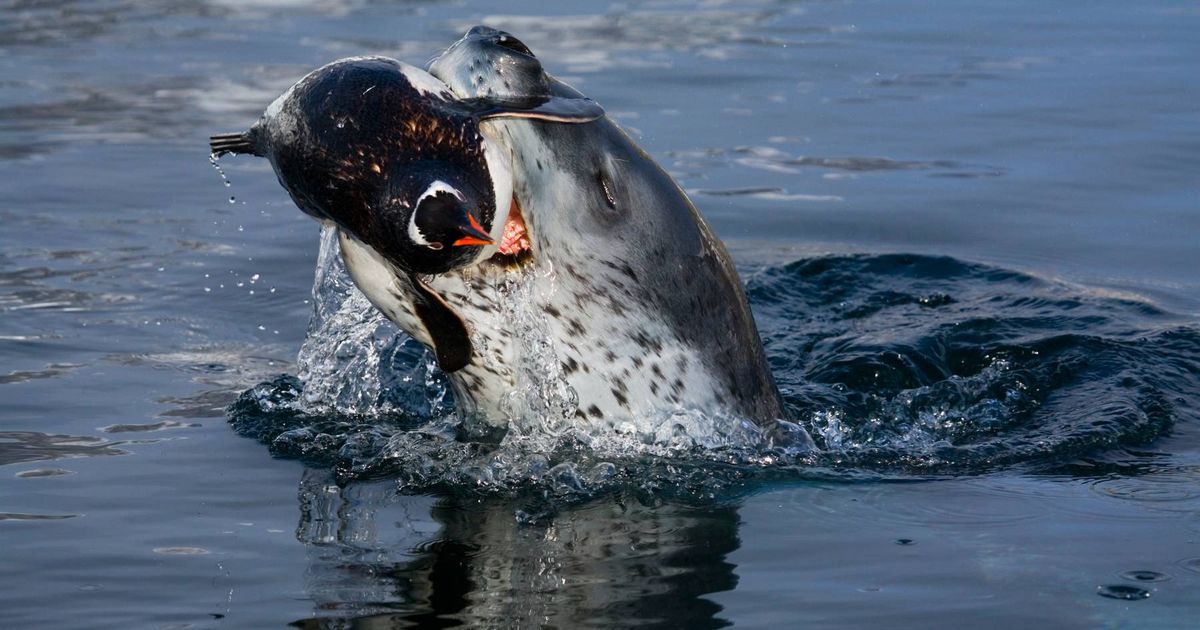WARNING: DISTRESSING CONTENT Kirsty Brown, 28, was snorkelling in an area surrounded by icebergs in the Antarctic Peninsula when a leopard seal attacked her It’s the only known attack of its kind(Image: Getty Images/National Geographic Creative)
It’s the only known attack of its kind(Image: Getty Images/National Geographic Creative)
In a shocking and deadly assault, a 28-year-old marine biologist lost her life to a leopard seal in the Antarctic Peninsula whilst snorkelling.
On July 22, 2003, Kirsty Brown, a British Antarctic Survey (BAS) marine biologist, was reportedly in the water with another researcher as they undertook survey work when a seal attacked without warning and pulled Kirsty underwater.
A spokeswoman for the BAS said Kirsty and her snorkelling “buddy” were at her study site in the bay adjacent to the UK’s Rothera Research Station when the fatal attack took place.
The young marine biologist was reportedly dragged from the water by two colleagues who were on the shore and witnessed the incident – immediately dashing to Kirsty’s aid.
Kirsty’s colleagues reportedly began resuscitation procedures in the rescue boat itself as they transported her back to the research station base for medical assistance, reports the Mirror.
 Kirsty Brown was killed in the Antarctic(Image: Press Association)
Kirsty Brown was killed in the Antarctic(Image: Press Association)
Tragically, attempts to revive the marine biologist proved unsuccessful as she heartbreakingly died.
Her horrifying death was believed to be the first documented human fatality caused by a leopard seal and left scientists worried about potential future seal attacks as the number of people working in the region continued to increase.
The 28-year-old had joined the BAS the previous summer on a 30-month contract and was investigating the impact of scouring by icebergs on marine animals living near the shores of the Antarctic peninsula. A TikTok video by thewanderingbeard2.0, which has now gone viral, delves into the circumstances surrounding Kirsty’s tragic death.
At the time of her passing, a statement from BAS read: “Despite carrying out cardio-pulmonary resuscitation for one hour, the station doctor and [her] colleagues were unable to revive her.”
Her sudden death shocked the Antarctic research community, with a verdict of accidental death recorded on 14 November that year by the Coroner for the British Antarctic Territory during an inquest.
According to BAS, initial reports indicated that Kirsty and her colleague had adhered strictly to all safety procedures and concluded that staff at the research station had handled the incident appropriately.
Content cannot be displayed without consent
Leopard seals are solitary animals, named for their distinctive spotted fur, and are not typically known to attack humans. With a large head and jaws housing canines that could measure up to an inch in length, a male leopard seal can grow as long as 3.5 metres and weigh more than 500 kilograms.
Their average lifespan is around 25 years.
While these marine mammals are known to be curious when encountering humans, attacks are considered rare unless provoked. BAS divers were generally advised to avoid areas where leopard seals were present.
According to BAS, Kirsty’s death was the first such attack recorded in 30 years of snorkelling and diving by its staff.
At the time, BAS ecophysiologist and Head of the Life at the Edge: Stresses and Thresholds (LATEST) Research Programme, Lloyd Peck, had disclosed that researchers regularly dived during winter months, as they were not deemed a particularly hazardous period of the year to be underwater.
He also portrayed Kirsty as “full of energy and enthusiasm … a good scientist who worked very hard and could do boring mundane aspects of work with a smile on her face.”
 The British scientist was killed while on a dive by a leopard seal(Image: Unknown)
The British scientist was killed while on a dive by a leopard seal(Image: Unknown)
In his statement, Lloyd said he “wished all scientists were like Kirsty” and disclosed they were determined to continue her project.
Kirsty had qualified in geology and oceanography, having served as a diver and research scientist in Greenland and Australia before joining the BAS’s LATEST Research Programme the previous summer.
The West Sussex native’s project had been designed to explore further the impact of iceberg disturbance on plant and animal communities that lived on the near-shore Antarctic seabed.
Kirsty had nearly finished the first stage of her research, which had required placing 500 concrete and plasticine markers to track iceberg gouging on the seabed.
In a joint statement, Kirsty’s parents, Tim and Judith Brown, her sisters Didi and Camilla and her brother, Duncan, said: “Naturally we are devastated about the news from the Antarctic – it all seems quite unreal. Kirsty was a great girl and we are all very proud of her. Right now we are looking to spend some quiet time at home with the family.”
The marine biologist’s family lived in Southwater, near Horsham, West Sussex.
In a statement issued at the time, BAS director Chris Rapley said: “This is tragic and shocking. My heart goes out to Kirsty’s family and her colleagues at Rothera. Kirsty was a vibrant, dynamic individual committed to her science and with a promising scientific career ahead of her. The Rothera team reacted in a highly efficient and professional manner… They are, however, shaken by the loss of a colleague and will need our support.”
